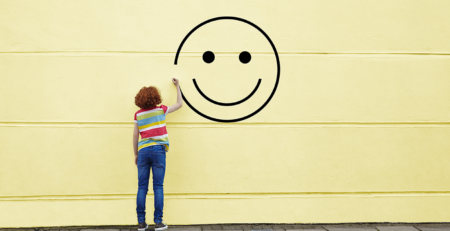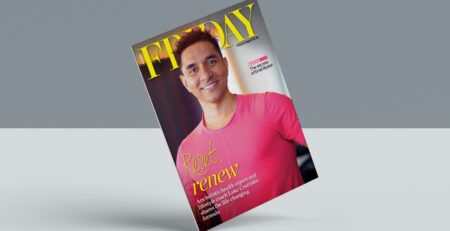Are You Ready for A 3-Day Global Intermittent Fasting Challenge?
Over the last decade, we have had hundreds and thousands of people from across the globe practice this way of smart fasting and experience excellent results. The key is to do it right and scientifically. I want to throw this challenge open to you too.
Are you ready to join this club with a 3-day global intermittent fasting challenge?
When should I start?
Start today if you can and follow this for the next 3 days. But before you begin, let’s dive into simple dos and don’ts to keep in mind.
Do not think of intermittent fasting as a fad diet
Don’t use intermittent fasting as a fad with the intention of weight loss. Weight loss is a beautiful side effect of intermittent fasting. It will happen automatically. But if it is your sole intention, it is wrong and will not work for you. When you back your purpose with the right intention, things work better.
What is the right intention?
The right intention would be to let the intermittent fast make you healthier, give your digestive system the rest it deserves, (and in the building phase) your trillion cells the nourishment they do. When you do this, you will experience every single benefit of intermittent fasting that thousands of people did. These include changes like reduced arthritic flare-ups, better sugar level control in Type 2 diabetes, fat loss, improved skin, stronger hair, and greater energy levels, among others.
Respect the building and elimination phase
The human body has two phases that you need to respect while intermittent fasting:
- The elimination phase is where you do not require food. It is where you do not eat or fast. In this phase, detoxification, repair, growth, hormonal balance, and so on happen.
- The building phase is where your cells look for nourishment from the food you eat to thrive, survive, build and carry out various other functions to live your day-to-day life. The phase in which you feed is called the building phase.
The rules are simple:
- Do not eat in the elimination phase.
- Do not starve in the building phase.
The idea behind intermittent fasting is to give your body the break it needs because when you are constantly eating, the human mind begins to slow down. You may think, eating more is giving you energy, but it is slowing you down and making you sluggish.
Ever had a heavy meal in the afternoon and then yawned through your meetings with droopy eyes? When you put excess food in your system, your digestive system needs a lot of energy to break this food down. When you have lighter and more balanced meals, you are more alert and productive.
In the olden days, people ate their last meal of the day at sunset due to a lack of natural light and electricity. This ensured a longer gap giving them a natural intermittent fast until the next morning when they had their breakfast. Today most of us choose to eat late-night dinners and socialize until the wee hours despite knowing that we need to wake up to work around the same time. Doing this is damaging your digestive system in the long run by decreasing the elimination phase. It is one of the major reasons why so many of us struggle with issues like acidity, bloating, flatulence, indigestion, constipation, weight gain, and excess fat in the belly and midriff area.
How many hours should I fast?

Some people fix their fasting windows at 14, 16, and 18 hours. But let me just tell you from experience: It doesn’t matter. The fasting window for everyone is different. Stop boxing yourself into 16:8, 14:9, and 18:6 windows because when you do this, by the time you reach the 12th hour, you are already in turmoil and stressing about reaching a set goal.
While some people do 18 to 22 hours effortlessly, others struggle to reach even 14 hours. Do what suits you. It is not a competition because your body is unique. The healthier and cleaner your lifestyle is, even 10 to 12 hours of intermittent fasting (on water) is sufficient for you. If you have a health goal it may be 14 to 16 hours. The timeframe can vary from person to person.
My advice to you is to start slowly, especially if you are a beginner. Start with a simple 12-hour fast and then gradually build it up to 14, 16, 18, or even more, if it suits you. Don’t get demotivated thinking you need to do 18 hours only.
Another golden rule is: Do not starve yourself
Some people try to push their bodies beyond its limit. You need to be aware of and listen to its biofeedback. Stop putting extreme stress on your body to reach 20 – 22 – 24 hours. Don’t wait to let it get extremely acidic. Your body has a set threshold. When you get a signal from your body to give it the nourishment it needs, break your fast.
What can I consume during the fast?
No food, only plain water. Many fad intermittent fasts today allow you to drink coffee, tea, and other stimulants.
You have to understand that the idea of an intermittent fast is to shut down your digestive system completely. All that digestive energy that you lock will be used in the elimination phase to clean out your system, repair cells, get rid of sick cells, boost your immunity, and build energy.
When it comes to nutrition, exercise, or anything in life – less is more. You are only allowed to drink water in the elimination phase when you are intermittent fasting.
If you plan to start your intermittent fast by eating your last meal at 7 PM this evening, you can achieve an effortless 12-hour fast until 7 AM tomorrow. Add another 2 to 4 hours, and you can take your fast up to 14 to 16 hours. When you do this, listen to your body and its biofeedback.
When you start your fast in the evening, it is easier to get through it. Why? Because you also sleep in between. Your mind is not awake or consciously thinking about food. The windows you choose are up to you.
How often should I practice it?
Start with 3 days for now. Some people prefer to practice it 5 days a week, others do it every day, and some do it once a week or fortnightly due to the nature of their work which may include hard physical labor. Do what suits you.
Other pointers to look out for
- Have a well-balanced dinner. Do not overeat.
- Drink water through the fasting period but do not overdo it. Have it in an adequate quantity. I suggest you drink room-temperature water or warm water. Warm water also has a natural detoxifying or cleansing ability.
- Go to sleep at a fixed time. When you wake up in the morning you may have a few hunger pangs because of your habit of eating quickly. Try to push through it. Demarcate between physical and emotional hunger.
- Some of you may experience a headache or feel a little acidic, but this is common because your system is detoxifying. If you have a lot of toxic overload in your body it is normal to get a headache to feel a little bit acidic.
Contradictions – Who should avoid intermittent fasting?
- People who have extreme acidity
- Extremely weak and underweight individuals
- Pregnant and lactating moms
- Highly unstable blood sugar and blood pressure levels
- Kidney diseases (especially those on water restriction)
- Those on medical treatments or medicines that need to be consumed during certain times of the day
- Those with high fever
Those on medications avoid doing this because keeping long gaps between meals may be detrimental to your condition. In our own experience, we have loads of people with severe acidity, and intermittent fasting solved their issue. They went through 1 to 2 days of discomfort but now do not struggle with acidity.
Similarly, those with diabetes need to listen to their doctor because we don’t know their sugar levels. If your doctor’s told you to eat every 2 to 3 hours depending on your sugar level fluctuations, ask for their guidance before trying this.
For cancer patients, while IF is effective, you need to make an informed decision. It depends on the stage of cancer, the kind of chemo, radiation, and how you are placed between cycles. And it needs to be personalized by a healthcare or integrative lifestyle medicine expert. Keep your doctor in the loop at all times before attempting intermittent fasting.
Why are we doing a 3-day fast?
There’s a particular reason why we are doing this 3-day global intermittent fast.
Day 1: You will go through hunger pangs and may feel discomfort (acidity, headache, nausea, weakness, irritation) because you are not used to fasting.
Day 2: It gets better and your energy levels start moving. Your hunger pangs though still existent, start reducing.
Day 3: By now, you have reached the most beautiful part of the fast. Your body will get used to the fasting window. Your hunger pangs may almost disappear and you will be full of energy. You will start feeling cleaner and lighter – inside out.
The biggest roadblock to intermittent fasting
Right now, the biggest hurdle between intermittent fasting and most people out there is FEAR. Fear about how they will not be able to reach their goal, how they feel hungry, and experience headaches and acidity. These are mindsets built on fear and insecurity. Break away from them. Don’t knock it till you try it. Yes, certain people who genuinely have problems may not be able to intermittently fast. But the rest of us can.
Once you have set the discipline, you can continue to make this a part of your lifestyle. Try this after holidays, vacations, night outs, parties, weddings, and so on, where you land up eating and drinking. It is a beautiful way to rebalance and reset your body.
How to break my intermittent fast?
Do not feast after fasting. There is a right way to break your fast. Don’t gorge on cupcakes or other heavy and processed foods.
Break it with a glass of plain water or lemon water. Do not just gulp it down. Sit down and sip it slowly. Swirl it around your mouth and gently swallow.
Follow this with dates or other nuts or dry fruits that suit you. You can also have fruit. The idea is to eat something light and full of raw enzymes, vitamins, and minerals that can line your stomach. Half an hour later, you can start introducing other foods and kickstart your building phase.
If you break your fast with the wrong foods, it can cause you more harm. It is why we never encourage anybody to break their fast with black tea, green tea, coffee, matcha, or other beverages. Breaking your fast with coffee is the worst thing you can do. Adding caffeine to an empty acidic stomach is detrimental. If you want to follow intermittent fasting, do it the right way, or don’t do it at all.
What to not do in the building phase?
The second biggest mistake people make is they try to diet in the building phase. Do not diet or eat skimpy meals during your building phase. Eat clean but a well-balanced diet during your eating window. Building means your cells are looking for nourishment. When you do not eat properly in this phase, you make your intermittent fast a fad. Eat clean and eat in moderation. Do not overeat.
Following the elimination and building phase according to the biological clock of your body is natural. All the snacking and overgrazing in between is man-made. Now, if you have very long gaps between meals, a snack may be necessary, but wanting to eat every 2 to 3 hours in the name of increasing your metabolic rate is rubbish. Unless of course, you have a condition where your doctor has instructed you to eat that way. But for the rest of us, metabolism doesn’t work that way. You will have stronger metabolism when you give enough time for elimination and building paired with good nourishment.
Do I have to give up socializing if I start intermittent fasting?
Many people say, “Oh! But if I start fasting, I won’t be able to socialize!” This is just an excuse. If your idea of socializing is only to eat and drink, you need to change your mindset about socializing. You can still go to a party, and have a good time with your friends, even when you are fasting. If you are party hopping to 5 places in a night, eat at 1 and not at the other 4. Once in a while it is good to enjoy yourself, eat what you like, and drink in moderation if you want to. But some people want to socialize every second day. You can either make a choice or an excuse. It is up to you.
If there are people who keep forcing you to eat despite you making it clear that you are fasting, you’re in the wrong group. The idea of socializing is to meet people and make great conversations. It doesn’t have to revolve around food all the time.
Can I work out during my fast?
Yes, you can work out during intermittent fasting. But if this is your first-time intermittent fasting, you may not want to work out intensively because you need to check how your body balances its energy. That being said, several of our clients who follow intermittent fasting, break their fast at the end of their workout. The energy levels they experience are incredible.
The bottom line
This simple challenge is to help you tap into your cellular energy like the human body was designed to without having to rely on stimulants. Try this 3-day challenge and keep me posted about your progress. All the best. Do this well.
Grab a copy of my book The Dry Fasting Miracle – from Deprive to Thrive here.
RELATED READINGS
A Beginner’s Guide to Intermittent Fasting: Benefits, Dos and Don’ts, and More
How Does Dry Fasting Benefit You?
Success Story | Using Intermittent Fasting to Lose Weight & Improve Health
Download Your FREE Copy of Our You Care Lifestyle Flow Designed by Luke Coutinho Today
|
From a pimple to cancer, our You Care Wellness Program helps you find a way Talk to our integrative team of experts today 18001020253 |










Leave a Reply